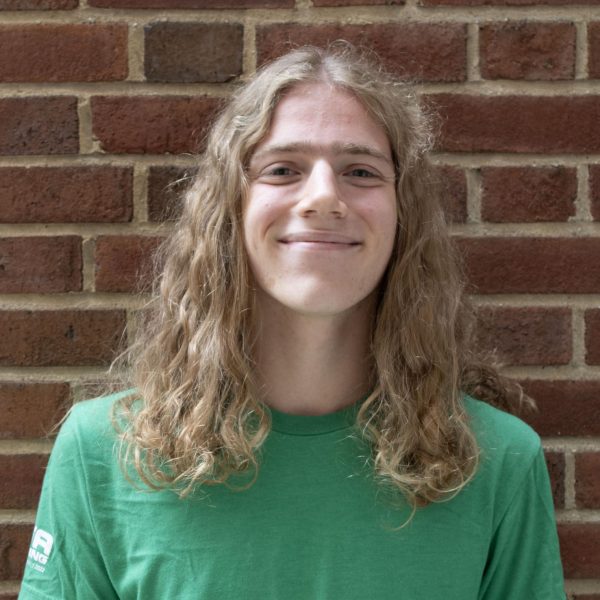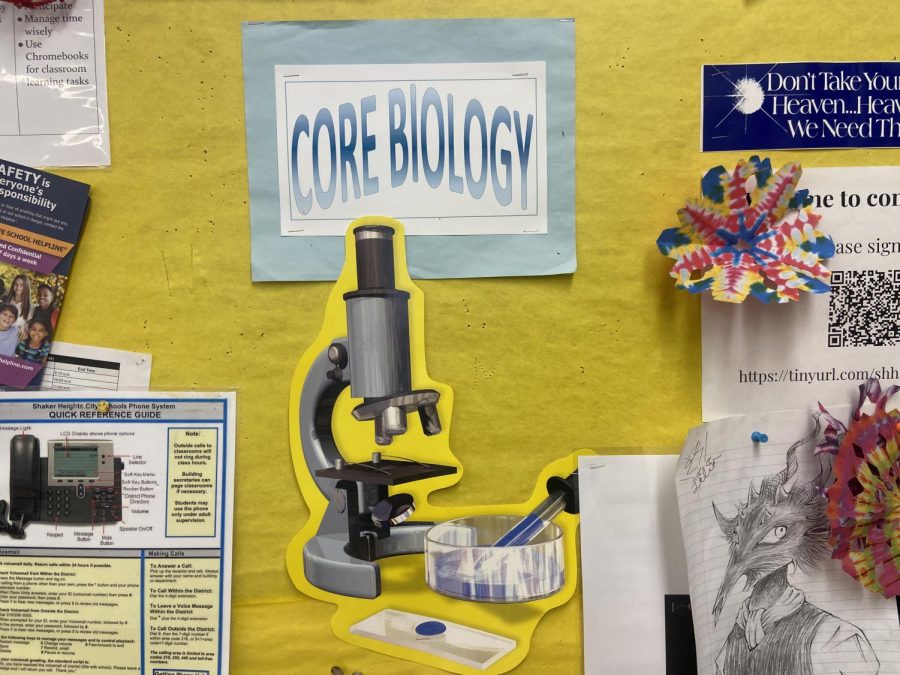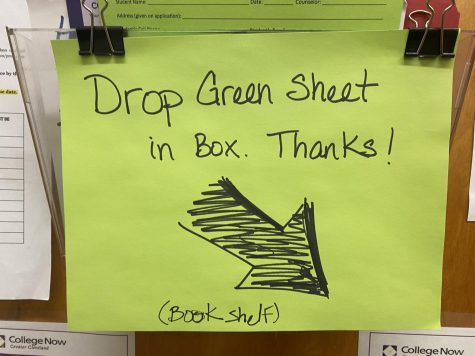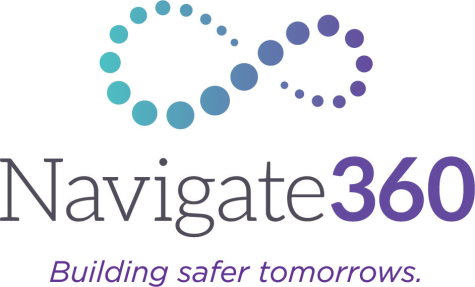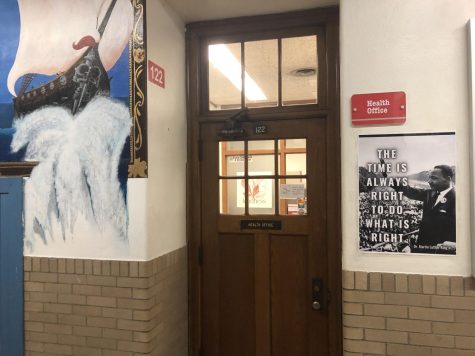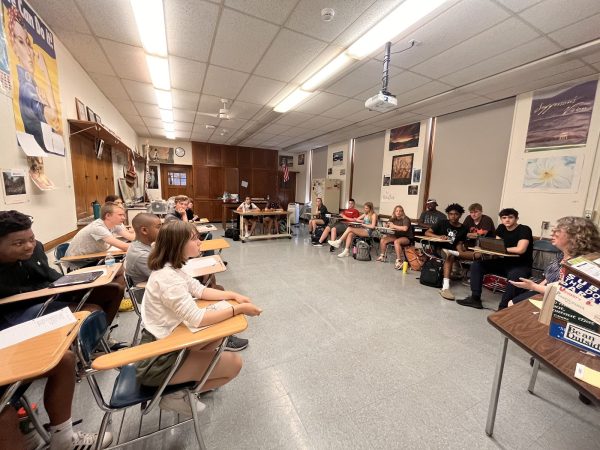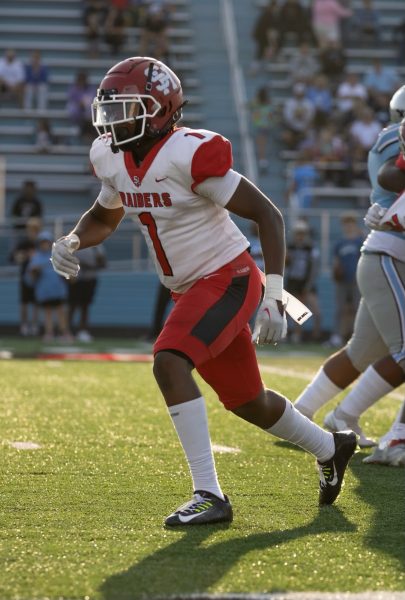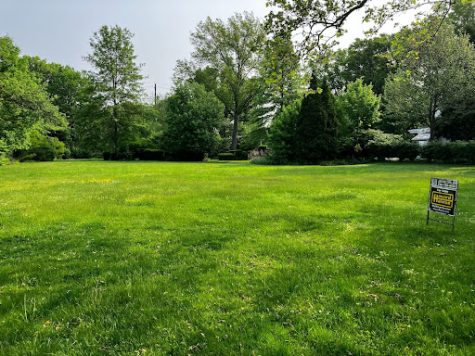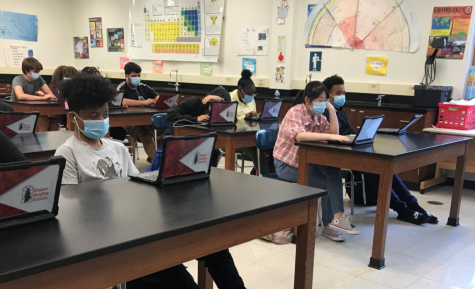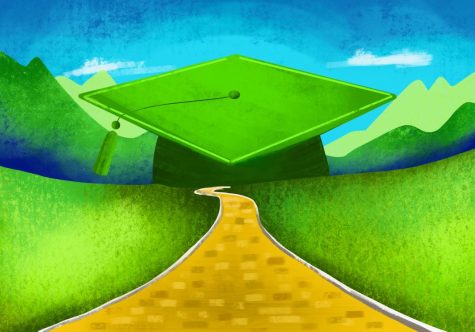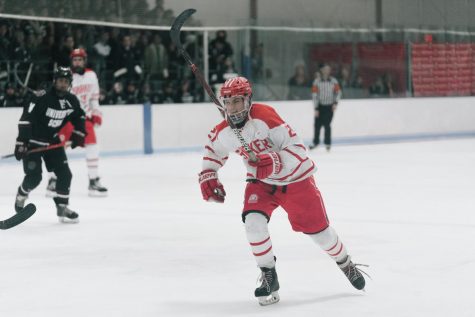“We did it the wrong way”
Detracking began without adequate preparation, some teachers say
Evidence of previously tracked biology classes remains on a classroom bulletin board. With the exception of AP Biology, all 10th-grade students now take the same biology course, which the district intends to be an honors-level class.
Two and a half years after detracking began, some teachers say they are not able to deliver honors-level curriculum in their classes.
Before detracking, most classes at the high school were separated into a core level and an honors level. Beginning in the 10th grade, some classes still offer AP and IB options.
The change was intended to move every student to an honors-level class, thus eliminating core-level classes. “We have to start preparing all of our students for the world they are going to enter. We need to make sure that every student is receiving an honors curriculum,” Principal Eric Juli told The Shakerite at the beginning of the 2021-2022 school year.
Dr. David Glasner, superintendent, announced at the time that the District would end its practice of tracking, and integrate honors- and core-level classes. The shift came in an effort to eliminate racially imbalanced classrooms that were based on perceived abilities of students. According to the Shaker schools website, “it has become the District’s call to action that every student is afforded the opportunity to rise up and meet their potential.” It’s not everybody in honors; it’s everybody in core — The biology teacher
In a 2021 Shaker Life Magazine story, Glasner explained that he noticed the imbalance when he walked into a core-level classroom at Woodbury Elementary School in 2019 and saw that the majority of the class was Black. Glasner, along with a few colleagues, asked the student where their white peers were. The student responded, “They’re in enriched,” meaning that those students had been selected for advanced instruction.
In the Shaker Life Magazine story, Glasner explained that “We had to ask ourselves, what are we doing to students if we’re sending the message explicitly and implicitly that white students are enriched and Black students aren’t.”
However, the biology curriculum as it stands today is “very close to the core curriculum” that existed before detracking, said one teacher who has taught both honors and core biology and who did not want to be identified by name. “It’s not everybody in honors; it’s everybody in core,” the teacher said.
The biology teacher also said there was no support for teachers when core and honors classes were integrated. Detracking came at the same time as the introduction of block scheduling at the high school, as well as virtual school caused by the COVID-19 pandemic. “In science, you change one variable to determine if that variable is what is affecting that [outcome] or not, and since there are several variables that changed at the exact same time, I can’t say that one is or is not causing the problem,” the teacher said.
Bill Scanlon, a physical science teacher who formerly taught honors-level classes said that the current curriculum for physical science is also very close to the former core curriculum. He said detracking in its current state “is a disservice to the kids at the high end, and it’s a disservice to the kids at the low end.” He also said that “it makes sense for kids who have the desire to work hard, to have them in a class together where you can really push them.” And that is not the case with detracked classes, he said.
Scanlon, who has taught at the high school for 26 years, also said, “It’s good for kids who struggle with science to be in smaller class sizes where they can get more attention. That doesn’t happen with detracked classes.” Additionally, he said he has seen more students failing Physical Science this year compared to previous honors courses.
A disservice to the kids at the high end, and it’s a disservice to the kids at the low end. — Bill Scanlon, science teacher
“The issue with honors being majority white and core being majority Black has been a problem since I started at Shaker 26 years ago, and I feel like the detracking was the first major thing that tried to address that. There have been little things over the years, but detracking was the first major major thing that could have been effective in helping that situation, but it just wasn’t rolled out correctly,” Scanlon said.
The detracking of science classes has left students who would have been in an honors class feeling like ”there’s a lot of work, but the work itself isn’t challenging,” said one freshman who requested to remain anonymous.
Within math classes, before detracking, there were core and advanced options. However there were also accelerated classes: 9 Math Honors, 10 Math Honors and 11 Math Advanced, which are still offered.
A math teacher, who formerly taught Core Algebra II and requested to not be identified by name, said the current curriculum is not identical, but very similar to the former core curriculum. “The quality of problems may have slightly increased, but overall the expectations and total content covered are more aligned with core than honors,” said the math teacher. They said that students are succeeding, but the kids who are proficient are seeing less content, and students who struggle have significantly lower grades.
Emily Shrestha, Language and Literature Department chairwoman, said that the curriculum for language and literature classes is not necessarily closer to the core curriculum or the honors curriculum, but any given teacher has to approach the material differently because there is such a range of abilities within each class.
“Students are getting the honors credit for the course, but we are teaching fewer books than we were before they were detracked, and we are putting in more support because students are coming in with deficits that they didn’t have before COVID and detracking,” Shrestha said. “With a range of kids reading from the third grade level to avid readers who read for fun, it’s really difficult to get all the kids engaged and find that common ground.” Deleveling in itself is not a bad thing, but we did it the wrong way. We did it all at once, without any sort of training for staff and without any context for students — Emily Shrestha, Language and Literature Department Chair
When detracking was first introduced, there were “an even number of parents calling because they were worried their student wasn’t going to be challenged in this course, and also the parents who were calling because they were worried their students were not going to get the support they needed, and a lot of times I don’t think people understand that it was one of those situations where almost nobody was happy,” Shrestha said.
“Deleveling in itself is not a bad thing, but we did it the wrong way. We did it all at once, without any sort of training for staff and without any context for students,” Shrestha said.
Dr. John Morris, language and literature teacher, said he thinks detracking has allowed classes to better represent the diverse community that Shaker is. Morris, president of the Shaker Heights Teachers’ Association, said, “Detracking, although we have more work to do, is a more equitable solution to us realizing our aims as a district.”
Editor’s Note: Two teachers requested not to be identified by name because they fear response from the district.
Comment using your Facebook, Yahoo, AOL or Hotmail account
